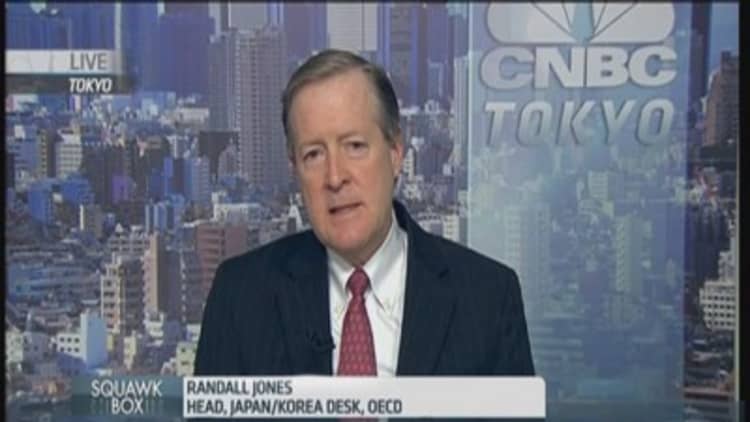Japan's core machinery orders rose in December at the fastest pace in six months, and companies expect orders to increase in the current quarter in an positive sign that business investment will underpin a firm recovery for the recession-hit economy.
The encouraging data is a welcome relief for the Bank of Japan at a time of considerable uncertainty in the global economy, with plunging oil prices and rising deflationary pressures prompting a wave of monetary easings around the world.
The 8.3 percent month-on-month gain in core machinery orders, a highly volatile data series regarded as a leading indicator of capital spending in the coming six to nine months, blew past the median estimate for a 2.4 percent increase.
The strength of the data was further burnished by a survey from the Cabinet Office showing companies also expect orders to rise 1.5 percent in January-March, stepping up from a 0.4 percent quarterly increase in October-December.

For the BOJ, robust capital expenditure means less pressure to further expand monetary policy in the near term, because business investment supports job creation and consumer spending - key pillars for accelerating inflation to the central bank's 2 percent price target.
"Corporate earnings have been good recently, and companies are starting to use some of these earnings to increase capital expenditure," said Norio Miyagawa, senior economist at Mizuho Securities.
Read MoreWeak capex spending spells trouble for Japan
"This is also a sign that domestic demand is doing well. You could say that the economy is headed in a direction that is favorable for the BOJ and the government."
Capital expenditure disappointed for most of last year as companies turned cautious after an increase in the national sales tax last April knocked consumer spending and tipped the economy into recession.
However, consumers are slowly starting to open their wallets while exports also show signs of strengthening.
A weak yen is encouraging and other electronics makers to bring production of some goods back to Japan from overseas, which could lead to more gains in capital expenditure.

